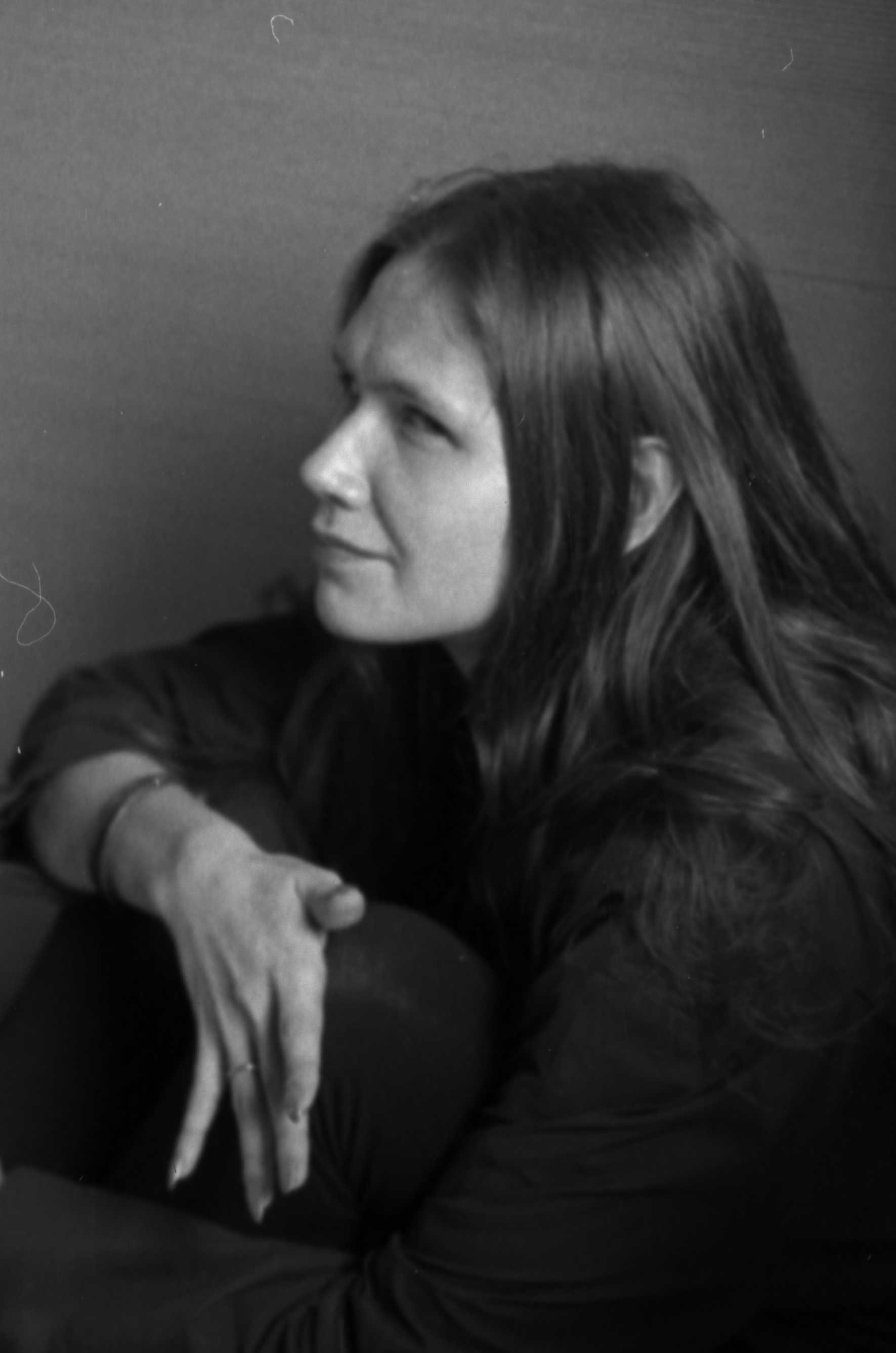
Liisi Ojamaa
Liisi Ojamaa (given name Katre-Liis Ojamaa, nicknamed Väike Hipi, ‘The Little Hippie’, 26. II 1972 – 8. X 2019) was an Estonian poet, translator, editor and literary critic, who ever since her debut collection Lõputu juuli (‘Endless July’, 1990) became known for her urban punk poetry.
She was born in Tallinn, the daughter of the translator Jüri Ojamaa and the editor Maarja Ojamaa. From 1979 to 1989 she attended Tallinn secondary school number 21, and graduated in 1991 from Tallinn secondary night school number 1. From 1991 to 1993 she studied English at the University of Tartu, and from 1993 to 1994 art history Tallinn College of Art (later the Estonian Academy of Art). She worked at the National Library as a librarian, as a journalist on the newspaper Õhtuleht, as a translator for the Estonian Legal Language Centre, as an editor on the IT-journal Maatriks and as a freelance translator. She belonged to the Estonian Writers’ Union. Apart from Tallinn she also lived in Saue and Paldiski. She died after a long serious illness.
Ojamaa published her first poems in 1988 in the journal Noorus. Her debut ‘punk’ collection, Lõputu juuli (‘Endless July’) was part of the compilation Luulekassett ’90 (‘Poetry Cassette ’90’), in which the other first-time poets were Elo Vee (Elo Viiding), Triin Soomets, Ats (Aidi Vallik) and Ruth Jyrjo. Between 1990 and 2011 Ojamaa published six collections altogether.
Ojamaa’s atmospheric and emotionally expressive poetry, with its romantic nostalgic undertone, celebrates the freedom of living, the possibility of being independent and reclusive, happy and in love in her own melancholy way. In its open spiritual and mental attitudes, her poetry conveys a hippie-like manifestation of innocence and naivety, in which one can see an avowed unwillingness to defend herself from the outside world or flee from it. The basic motifs of her poetry originate in the domestic urban environment, from Tallinn, which she likes to personify and mythologise, and are often linked to the seasons, mainly spring, autumn and winter.
In the best of her work Ojamaa achieved verses that denied the everyday, and touched on timeless themes, verses that have expressive grace, precision and formal rigour. Behind the simple images and energetic rhythms of both her rhymed and her free verse there is no attempt to aestheticise or heroicise excessively. As a stylistic feature the poetess consistently used the foreign letters y, w, x, and the ampersand &; she also intertwined verses in English into her Estonian texts. The mature verses of her last collection Ajalaulud (‘Songs of Time’, 2011) are vivid and melodic, but continually dark in tone. She also published some short prose texts and literary criticism.
Her poems have been set to music, performed and recorded by many Estonian groups.
She translated more than sixty books, mainly children’s and science fiction literature from English, including works by K. Ishiguro, J. Galsworthy, M. Z. Bradley, A. McCaffrey, L. F. Baum and many others.
A. O. (Translated by C. M.)
Books in Estonian
Poems
Lõputu juuli. Tallinn: Eesti Raamat, 1990, 77 lk. [E-raamat: Tallinn: Bahama Press, 2001.]
Myyrid & wärawad. Tallinn: Perioodika, 1993, 45 lk. [E-raamat: Tallinn: Bahama Press, 2002.]
Lootus. Tallinn: Varrak, 2000, 38 lk. [E-raamat: Tallinn: Bahama Press, 2001.]
Ärasaatmata kirjad. Tallinn: Varrak, 2002, 61 lk.
Jõgi asfaldi all. Tallinn: Varrak, 2008, 52 lk.
Ajalaulud. Tallinn: Varrak, 2011, 83 lk.
Kahel lahtisel käel. Ilmunud ja ilmumata luule. Koostajad Doris Kareva ja Andres Aule; kujundus ja fotograafika: Ly Lestberg, portreefoto: Marko Mumm, linnafotod: Kaisa Kaer, kaardid: Dagne Aaremäe; eessõna: Doris Kareva, kommentaare ja selgitusi: Andres Aule. Tallinn: Varrak, 2020, 575 lk.



